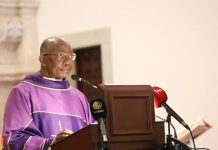Africa-Press – Angola. Angolan university professor Silvestre Francisco said that Angola has the right to tax its citizens in the diaspora, but there is still work to be done internally, such as establishing agreements and aligning taxation criteria with international requirements.
At issue is the preliminary version of the Personal Income Tax (IRPS), a legislative proposal from the General Tax Administration (AGT), which is under public consultation and provides that Angolans and foreigners who remain in Angola for 30 days or more will be considered tax residents and subject to this taxation.
Speaking to Lusa, the professor at the Faculty of Economics and member of the Center for Social and Economic Research at Agostinho Neto University said that this possibility exists, but it depends on agreements with the countries where these national citizens reside.
“It is possible, it is peaceful, because there is already progress in countries that tax the diaspora, such as the USA”, said Silvestre Francisco, highlighting that the US government taxes its citizens abroad, but the embassies are all geared towards providing services to them.
Silvestre Francisco highlighted that Angola “does not have any organization in terms of control processes for diaspora personnel, nor does it have any preparation in terms of tax processes for the diaspora”.
“We have a taxation problem internally, so I don’t think it’s a decision to start at AGT level.
There is such an initiative, but there was sensationalism on the part of those who publicized it”, he stressed. The prospect for the implementation of this tax is set for the beginning of next year, but, “if there is such progress, in 2026, we are saying that Angola is not in a position to do so”.
The researcher also highlighted that the Angolan tax system does not have the necessary reforms “to be aligned with other countries”.
“Angola must have the same taxes as the countries with which it will make an agreement and then the taxation criteria must be aligned with international requirements, we must have structural reform at the level of our tax system”, he stressed.
On this matter, the coordinator of the Social and Economic Research Center at the Faculty of Economics at Agostinho Neto University, Fernandes Wanda, highlighted that taxation is a social contract “in which the citizen accepts being taxed by the State in exchange for goods and services”.
“What we know about the relationship between the Angolan State and our diaspora is a love-hate relationship, because we often get the feeling that those who are abroad, despite the political discourse – and we heard it from the President, that despite being abroad they are Angolans and should be respected and the State must pay attention to them – this is not the reality”, he considered.
For the university professor, the State must be aware “that if it is going to tax these Angolans, it must also guarantee goods and services for these citizens, not only in terms of, for example, documentary issues.
“It is a right that the Angolan State has, Angolans are always Angolans wherever they are, but the State also has to be aware that it has to provide services to these Angolans wherever they are,” he noted.
In turn, the resident representative in Angola of the International Monetary Fund (IMF), Victor Llelo, highlighted the effort to mobilize non-oil tax revenues, which is fundamental for Angola, with Gross Domestic Product (GDP) revenue ratios still relatively below the region’s average.
“It is essential to increase this mobilization, precisely to reduce external dependence, both in terms of aid and financing,” he emphasized.
angola24
For More News And Analysis About Angola Follow Africa-Press






